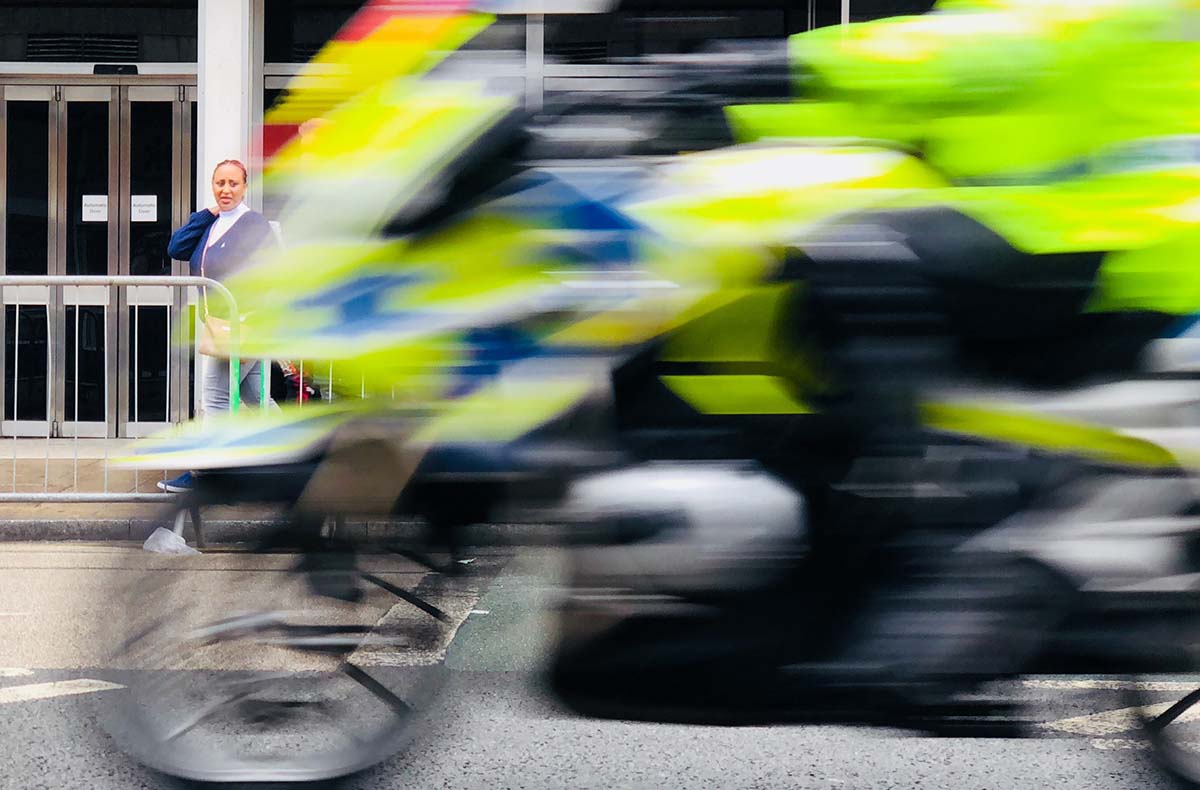
“Haven’t you got something better to do, officer? Like catch real criminals?”
We’ve all heard the cheeky refrain aimed at bored-looking British police officers called to the scene of a non-urgent incident. Quite often, the officers involved will have been called to assist a vulnerable individual with a mental health disorder—a move that can lead to a needless (for the police) visit to the local hospital or place of safety where the person involved can be assessed by genuine experts.
So, at first glance, the decision by London’s Metropolitan Police Service (MPS) to stop attending non-urgent mental health callouts from September seems sensible.
From next month, the Met’s chief constable Mark Rowley says officers will only attend callouts involving somebody with a mental health disorder if there is an “immediate threat to life”. Or when a serious offence may have been committed. Officially, the Met is rolling out its part of a new national initiative within UK mental health policy, known as Right Care, Right Person and successfully trialled in Humberside, North Yorkshire.
Rowley estimates his force currently spends 120,000 hours annually attending “999” callouts involving somebody with a mental health condition—on average, it takes 23 hours from the moment somebody is detained under the Mental Health Act to hand them over to more suitable and better trained carers
“It is principally a health matter,” Rowley recently informed London’s health, mental health and social services officials. In theory, his decision, announced in May, should free up tens of thousands of police hours and significant resources to focus on tackling knife crime, burglaries or antisocial behaviour: The very crimes sarcastic Brits love to remind officers about.
And since Rowley’s unilateral announcement, UK government ministers have helped broker a National Partnership Agreement (NPA) under which all police forces could eventually adopt the same policy—saving national police an estimated one million hours annually. Although, outside of London, there is no firm deadline by which other police forces and public bodies should adopt Right Care, Right Person.
Few people would argue with the principles that underpin this change of policing. It has always struck Brits as odd that busy police officers, with only basic mental health training, are often the default first responders to mental health incidents—and attend non-emergency incidents, hospitals and specialist care facilities. The whole situation arose because of unchecked police “mission creep”. But, as is often the case when formulating and implementing public policy, police leaders and their enablers—UK ministers—should beware the “law of unintended consequences”.
In this instance, the unilateral decision of Europe’s biggest police force will have a significant impact on the UK’s National Health Service (NHS), mental health trusts, local government, charities and the voluntary sector—the police’s key partners across the Right Care, Right Person policy. Not to mention the group most affected by the short-notice change of policy: People with a mental health disorder or condition.
And therein lies the rub: The rest of the UK is not ready for such a significant policy change. You see, if the police stop attending mental health callouts before their key partners are ready to pick up the systemic slack—especially the NHS, mental health trusts (not all of which have enough “Section 136” suites for people detained under the Mental Health Act), social workers, charities and voluntary bodies—then who will become responsible for people in mental health crises?
The police should never have been performing this role as often as they do. But if police officers are now largely removed from the equation, then surely all local communities must first be equipped to assume the workload?
In a stark statement, the Local Government Association (LGA), which represents UK councils with social care and children’s services responsibilities, recently warned that the Met’s switch to Right Care, Right Person should be delayed until city and town halls can manage a change likely to place huge new demands on social workers and mental health staff—just when the UK has a major workforce shortage.
Responding to central government’s announcement of the NPA, Councillor David Fothergill, chair of the LGA’s community wellbeing board, said: ‘Councils recognise that the police may not always be the most appropriate service to respond to a mental health crisis and so it is good that this is being clarified through this national agreement.
‘However, we are concerned that this is being rolled out too quickly, with inadequate local engagement and partnership working meaning that other agencies risk being unable to pick up any increases in demand for their services.’
The Approved Mental Health Professional Leads Network, which represents the sector’s most senior managers, has also expressed concern at the speed with which the Met is ‘unilaterally intending to act’ and has called for ‘more collaboration’.
Fothergill and the LGA recently wrote to UK government ministers urging them to delay the introduction of Right Care, Right Person until London’s wider public services are ready. Now, all eyes are on ministers and what they will decide. I know what I would do.
It’s an unenviable position for the UK’s police forces, though. Police leaders want to ditch unnecessary officer callouts so that they can focus on their primary remit—tackling crime—because that is what they are measured against.
But leadership, especially in the political and public policy world, is also about ensuring you take people with you when ‘new thinking’ is implemented or reforms are underway. Innovating is all well and good—and ultimately Right Care, Right Person should lead to better outcomes for people with mental health disorders. But if you don’t first put in place measures and resources to handle the fallout, then you run the risk of creating a bigger problem.



